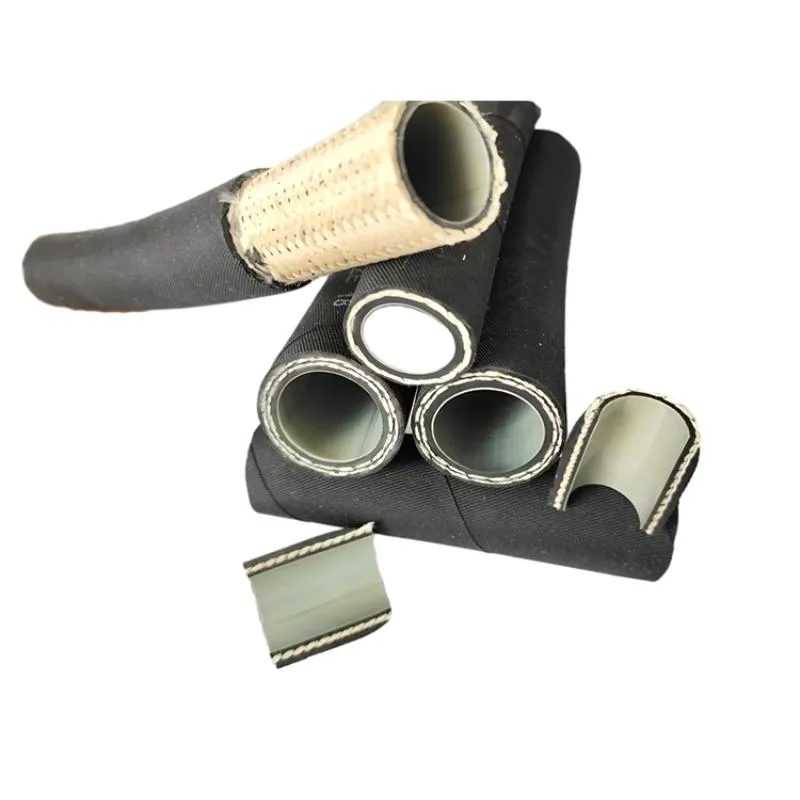Anti-Static Fuel Hose Enhancing Safety in Fuel Delivery Systems for Vehicles
ធ្នូ . 10, 2024 02:29 Back to list
Anti-Static Fuel Hose Enhancing Safety in Fuel Delivery Systems for Vehicles
The Importance of Anti-Static Fuel Hoses in the Industry
In today's world, the transportation and storage of fuels are crucial for various industries, including automotive, aviation, and industrial sectors. Given the volatile nature of fuels, ensuring safety during handling and transportation is paramount. One of the essential components in achieving this safety is the use of anti-static fuel hoses.
Understanding Anti-Static Fuel Hoses
Fuel hoses are designed to transport fuel from one point to another, but they can also be a source of potential hazards if not properly equipped for safety. Standard fuel hoses can accumulate static electricity, which can pose a significant risk of fire and explosion, especially in environments where flammable vapors are present. Anti-static fuel hoses are engineered with materials that prevent the buildup of static electricity, thereby reducing the risk of ignition due to sparks caused by static discharge.
The Mechanism Behind Anti-Static Technology
Anti-static fuel hoses typically incorporate conductive materials, such as carbon black, within their construction. This conductivity allows any static charge to dissipate harmlessly into the ground. By offering an effective pathway for static electricity to balance out, these hoses minimize the chances of creating a spark that could ignite volatile fumes. Additionally, these hoses meet industry standards and regulations, ensuring their reliability and effectiveness in demanding environments.
Applications in Various Industries
The applications for anti-static fuel hoses are widespread. In the automotive sector, they are essential for fuel transfer systems, where consistent and safe delivery of fuel to engines is crucial. In aviation, these hoses are vital for fueling aircraft, where safety protocols are especially stringent due to the high-risk nature of aviation fuel. Furthermore, in industrial settings, such as oil refineries and chemical plants, anti-static hoses are important for transporting various fuels and chemicals, protecting both personnel and property from potential accidents.
anti static fuel hose

Benefits of Using Anti-Static Fuel Hoses
1. Enhanced Safety The primary benefit of anti-static fuel hoses is the drastic reduction in the risk of fire and explosion. By preventing static electricity buildup, these hoses create a safer working environment.
2. Durability Anti-static hoses are often made from high-quality materials that withstand harsh conditions, including extreme temperatures and exposure to various chemicals. Their durability ensures a longer service life, which is economically beneficial for businesses.
3. Compliance with Regulations Many industries are subject to safety regulations and standards. Using anti-static fuel hoses helps companies comply with these regulations, thereby avoiding potential fines and legal issues.
4. Improved Performance Anti-static hoses can enhance the overall performance of fuel systems by ensuring consistent flow rates without the interruptions caused by static charges.
5. Versatility These hoses are suitable for various types of fluids, including diesel, gasoline, and other petroleum products, making them a versatile choice for many applications.
Conclusion
In conclusion, anti-static fuel hoses play a pivotal role in enhancing safety and efficiency in the handling and transportation of fuels across multiple industries. Their unique design prevents static electricity buildup, effectively mitigating the risks associated with flammable materials. As industries continue to evolve and demand greater safety measures, the adoption of anti-static fuel hoses will likely increase. Companies looking to improve their safety protocols should consider investing in high-quality anti-static fuel hoses as a critical component of their fuel management systems. The benefits not only contribute to a safer workplace but also support regulatory compliance and operational efficiency, making these hoses an indispensable asset in today's fuel-dependent economy.
